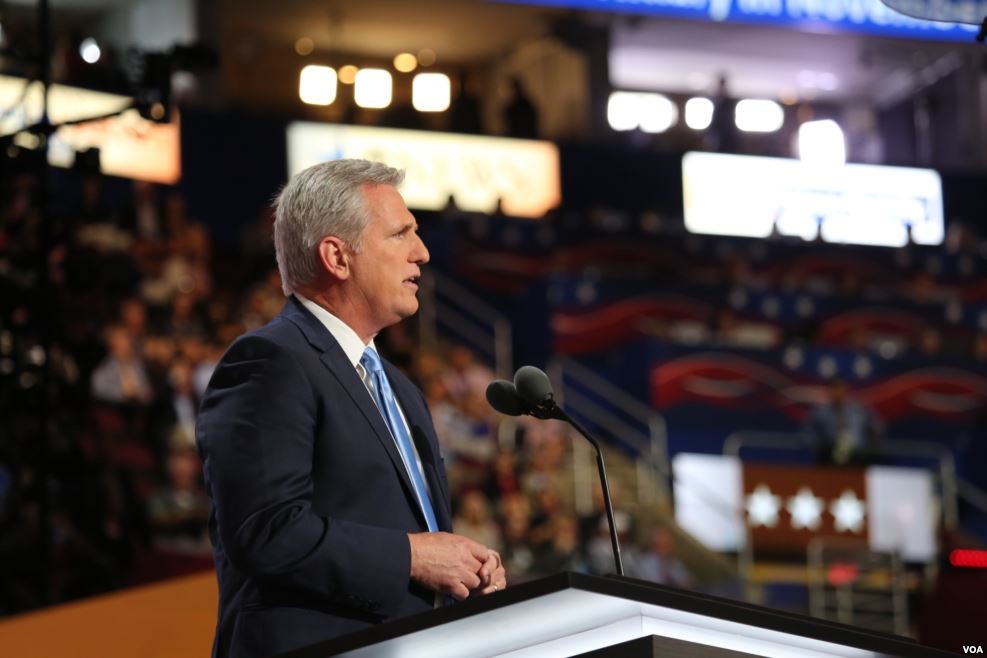Views expressed in opinion columns are the author’s own.
Some people don’t take guys named Kevin very seriously, but in the quest for professional respect, no Kevin has as great of an opportunity as House Speaker Kevin McCarthy. He has the chance to save the Republican Party, the soul of American democracy and his own political legacy with his signature flaky loyalty.
A couple weeks ago, McCarthy overcame a historic 15 vote stall to become the second-in-line for the presidency.
With how badly the recent midterms went, it’s no surprise McCarthy was forced to make private deals with party holdouts to receive enough votes. But what’s tricky is that even though these party holdouts are aligned with the type of Republican who the midterms proved does not have wide approval, their deals with McCarthy have given them extreme power via important assignments and congressional rule changes.
But not all of these deals are legally binding. A promise is only as good as the person who agrees to its word, and McCarthy — luckily for all of us — seems to change his mind a lot. I’m not saying this to mock McCarthy. I truly believe his history of quick alliance hopping is a strength in these circumstances.
McCarthy worked hard to get this speakership; I can’t imagine finding the patience to sit through 15 rounds of voting was easy. He deserves to enjoy the full powers of the position instead of relinquishing some to gain the support of party extremists.
As speaker, his duty is also to the American people, not just his colleagues. While he may consider Republican proposals to genuinely be the best solutions, this has to come from consideration of all Americans, not just Republican voters. McCarthy should have been free to assign committee positions meritocratically to his Republican colleagues, rather than being forced to give one to potentially undeserving party holdouts.
It’s difficult to judge how unrepresentative the deals with the holdouts might be. Their full contents aren’t public, but some of these concessions are extremely alarming, such as refusing to increase the debt ceiling without certain spending cuts. This would ask politicians without economic expertise to think for fiscal experts, which is a perennially terrible idea. It’s also incredibly dangerous—there’s a real likelihood that failure to increase the debt ceiling will lead to a catastrophic global financial meltdown.
McCarthy should break this debt ceiling agreement — and any other non-legally binding concessions — and do what is actually necessary for the good of the country. This doesn’t mean he has to abandon popular Republican causes such as fiscal conservatism. He just has to show he’ll have American citizens’ interests, not those of colleagues, in mind.
This isn’t to say that McCarthy doesn’t face any risks here. One of the deals he struck with the GOP holdouts is a rule change that makes it much easier to depose him as speaker. Breaking any of these deals would make him very vulnerable to losing the speakership. However, even if he doesn’t renege on any of his concessions, this rule change means it’s easy to arbitrarily remove him. He could do everything the holdouts demand and still lose his position if someone more amenable to the rest of the House Republicans (like Jim Jordan) lines up.
McCarthy isn’t secure in his seat regardless of which risks he chooses to take. When all actions can lead to the same outcome, I’d argue there is minimal difference in risk between acting however he prefers and how he promised his opponents he’d act.
And we know that McCarthy does not always believe in the same stances as other members of his party often do. He’s expressed non-total conviction on issues such as celebrating government shutdowns, cutting Planned Parenthood’s funding, impeaching the sitting president and vice president and supporting Jan. 6 rioters. Somewhere in his heart, he may know right from wrong, and that ethically dubious (or even just dumb) opinions that representatives hold can have major consequences for the American people.
In his position as House speaker, McCarthy is obligated to make all political decisions for the best interest of the American people, despite any professional risk.
But despite this risk of being voted out, McCarthy has the opportunity to be remembered as someone who defended American democracy and saved the Republican Party from undiplomatic upstarts. He’d be a fool to not even try.
Jessica Ye is a junior economics and government and politics major. She can be reached at jye1@terpmail.umd.edu.



